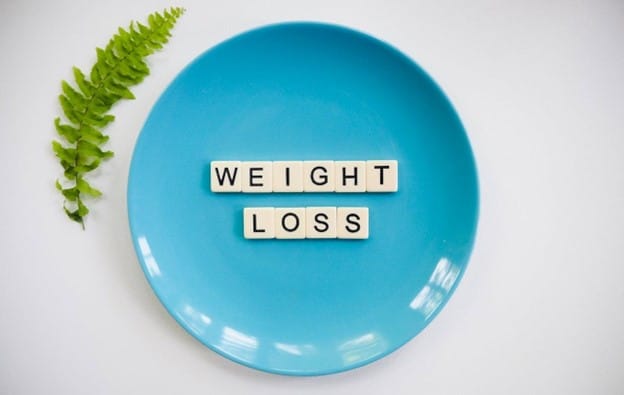Table of Contents
Maintaining a healthy weight has real benefits for overall health – better sleep, more energy, and reduced risk of multiple diseases, including diabetes and heart disease, to name a few – but there’s no doubt managing weight is a challenge for most people.
Of course, you know the drill: every health expert recommends diet and exercise, but with urban life’s constant stress and temptations (endless fast-food chains, coffee shops, plus fewer opportunities to move around naturally), “just eat better and exercise more” sounds overly simplistic.
For many, especially those with conditions like insulin resistance or diabetes, weight loss is not just more complex but actually harder.
If you’re considering using medication to support weight loss, you’re not alone. More and more people are turning to medications like Metformin or GLP-1 receptor agonists as they have been shown to be effective for weight loss.
But here’s the thing: they work best when paired with sustainable habits around diet, exercise, and daily routines.
Nutrition that Works with Your Goals
Weight loss medications can certainly be helpful, but food choices can either enhance or limit their effectiveness.
The most important thing to remember here is that healthy nutrition isn’t about harsh restrictions but smarter choices. You want balanced, nutritious meals that help your body manage hunger, blood sugar, and energy levels.
- Mind the Macros: Getting a good mix of proteins, healthy fats, and complex carbohydrates can help stabilize energy.
Protein keeps you feeling full longer and can protect muscle mass as you lose weight. Fiber-rich foods are also valuable because they slow down digestion and help regulate blood sugar levels, which works well alongside medications that target glucose control. Just be mindful of serving sizes.
- Beware of Sugar and Processed Foods: Some foods actively work against your weight-loss efforts. Refined sugars and overly processed foods can lower insulin sensitivity, making it harder for your body to burn fat efficiently.
Plus, since many weight-loss medications focus on insulin or metabolic processes, cutting down on high-sugar foods lets them do their job more effectively.
- Eat for Your Medication’s Schedule: Some medications, such as GLP-1 receptor agonists, may reduce your appetite and make it easier to eat smaller portions without feeling deprived.
Try adjusting your meal sizes and schedules based on how your body responds – often, a few smaller meals with nutrient-packed snacks help regulate energy levels and prevent cravings.
Exercise for More Than Just Calorie Burn
Exercise is essential not just because it burns calories but also because it reduces your risk of chronic diseases, improves your cognitive skills, and enhances your mental health. Not to mention, it also makes your body more sensitive to insulin. Here’s what you want to focus on:
- Strength Training and Cardio Combo: A mix of resistance training and cardio builds lean muscle while improving cardiovascular health. Muscle tissue burns more calories than fat, even at rest, so adding strength training can make your body a more efficient fat-burner.
- Consistency Over Intensity: While intense workouts can be helpful, consistency is what matters most. If medication gives you more energy, use it to create a sustainable routine. Aim for at least 150 minutes of moderate aerobic activity each week, spread out as needed.
- Movement Throughout the Day: A 30-minute workout is great, but it won’t offset hours of sitting. Simple strategies, like standing every 30 minutes or adding short walks during the day, can complement meditation’s effects on metabolism.
How Medication Can Support Weight Loss (And Where It’s Not a Magic Fix)
Weight-loss medication can provide important support, especially for those dealing with conditions like type 2 diabetes, insulin resistance, or metabolic syndrome, where weight gain is more stubborn. But they aren’t a silver bullet.
Incorporating medications like compounded semaglutide into a weight loss plan can amplify the effects of healthy lifestyle changes. This synergistic approach targets key factors of weight management, supporting more effective and sustainable results.
- Medications Like Metformin: Commonly prescribed for insulin resistance or diabetes, Metformin helps lower blood sugar by improving insulin sensitivity.
Some people find it can help reduce appetite or prevent weight gain associated with diabetes. However, Metformin as a weight loss solution works best when you’re also eating a balanced diet and exercising regularly – it’s part of a strategy, not a standalone fix.
- Newer Medications: GLP-1 agonists, such as semaglutide or dulaglutide, affect appetite by interacting with certain receptors in the brain (those that process hunger and satiety). But lifestyle choices still matter – junk food will work against medication, making it harder to see results.
Now, when should you consider medication? If you’ve made lifestyle changes and aren’t seeing results, it might be time to talk to your doctor about whether medication could help.
Other Factors: Sleep, Stress, and Personalization
Effective weight loss doesn’t stop at diet, exercise, and medication – other factors like sleep and stress management can influence results just as much.
- Prioritize Quality Sleep: Poor sleep disrupts your hormones, increasing hunger and making you more likely to crave high-calorie foods. So, aim for 7-8 hours of quality sleep to support weight-loss efforts.
- Stress Management: Stress triggers the release of cortisol, which can lead to overeating and fat storage, especially around the abdomen. Techniques like mindfulness and meditation, regular exercise, or even just setting aside “downtime” each day can help.
In the end, remember that not all methods work for everyone. While some people do well with intermittent fasting, others need regular meals to manage hunger. Find what works for you, keeping in mind that balance – not extremes – will bring sustainable results.
Image Source: Pexels

